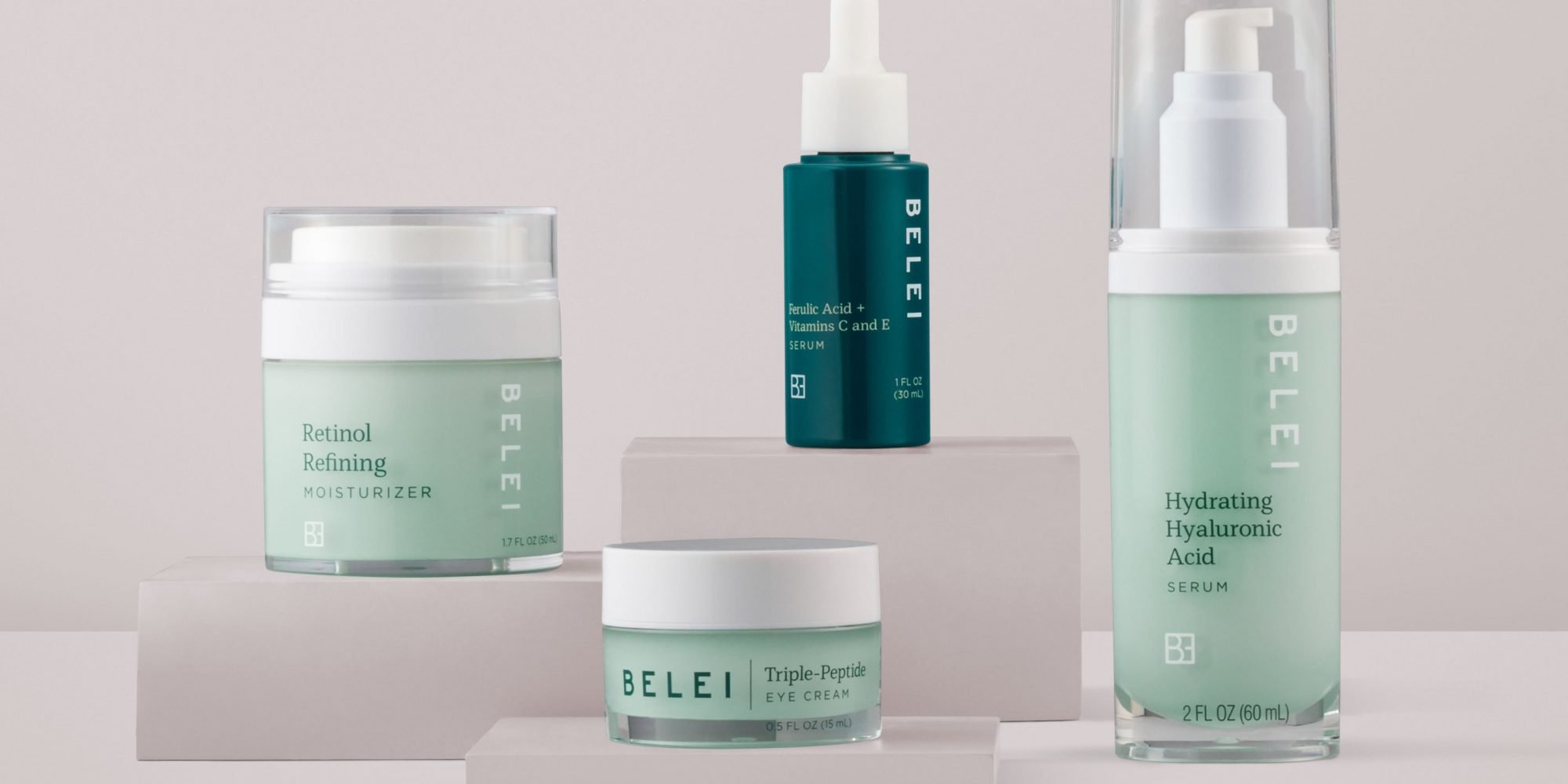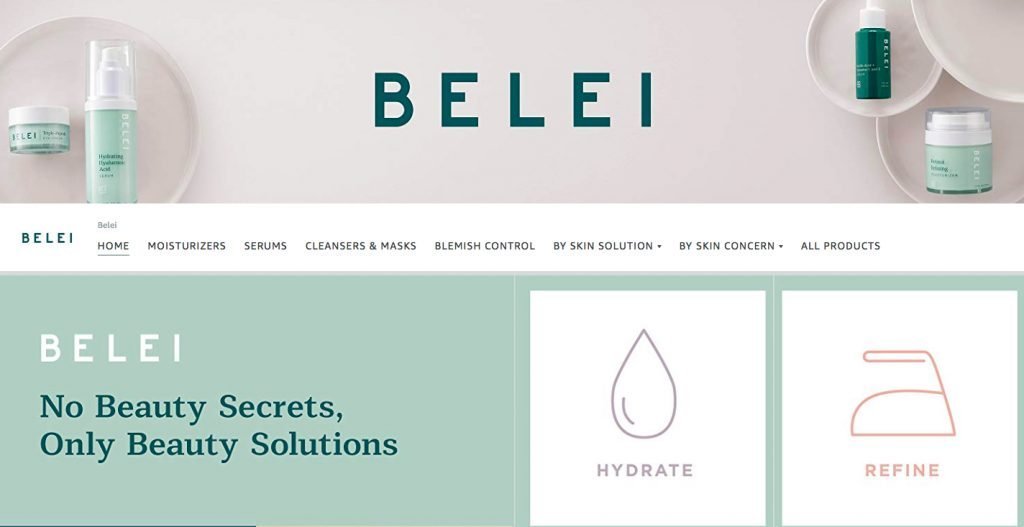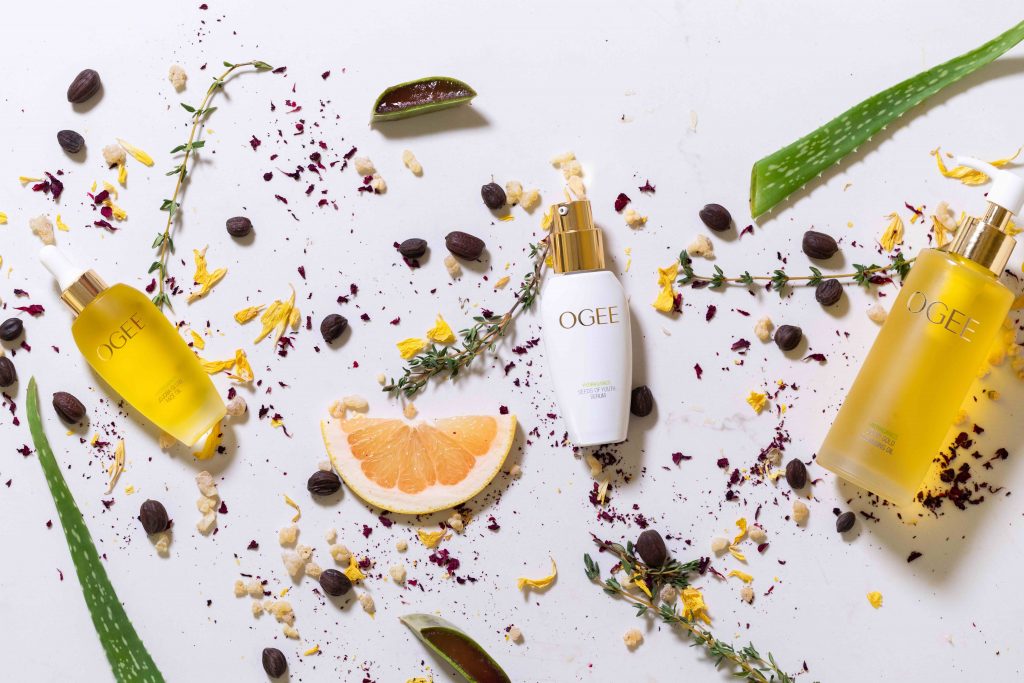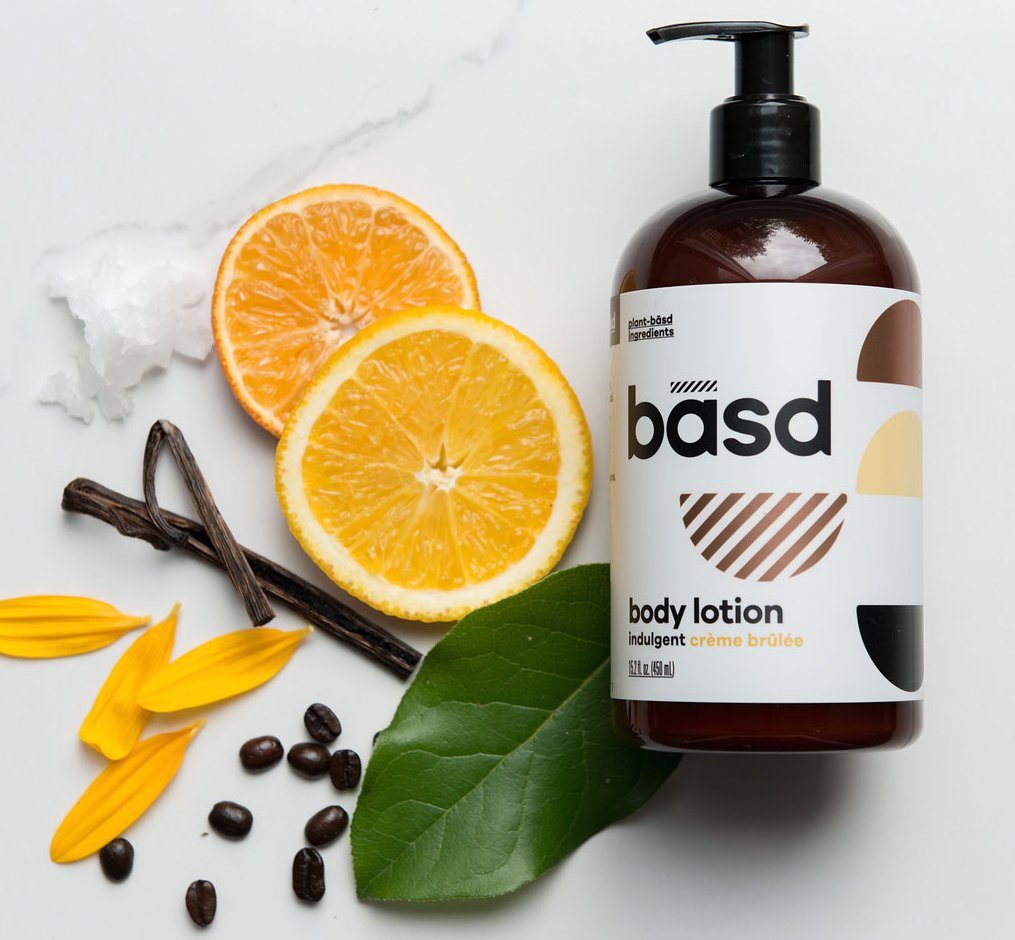
Who’s Afraid Of Amazon’s New Skincare Brand Belei? Not Indie Beauty Entrepreneurs
Originally published on March 21, 2019.
On Wednesday, a new skincare brand’s charcoal mask, retinol moisturizer, ferulic acid serum and peptide eye cream were splashed atop the Amazon landing pages of presumably millions of American beauty consumers. Called Belei, the brand garnered extraordinary visibility for its premiere, and that’s because its ubiquitous corporate parent and distribution partner are one and the same: Amazon.
The e-commerce giant has pushed into private-label territory in a major way in the beauty category with a 12-item range that Glamour writer Halie LaSavage compares to Glossier and Summer Fridays, and industry insiders describe as a cheaper version of Drunk Elephant housed in light to dark green bottles and boxes. Amazon touts Belei as targeting specific problems (i.e., dark spots, dehydration and dullness), skipping buzzwords, although its heavy on buzzy ingredients like vitamin C and hyaluronic acid, caring about the earth (the packaging is 100% recyclable), avoiding phthalates, sulfates, fragrance and animal testing, and being affordable (prices run from $9 to $40).
To recap, Belei has many of the attributes of an emerging independent clean skincare brand without the entrepreneurial founder, measly budget or transparency inclination. Amazon issued a statement about Belei in which Kara Trousdale, head of beauty for its private brands, emphasized Belei’s no-nonsense approach to skincare, but declined to elaborate on the brand’s background or future strategies. But Amazon didn’t need to reveal much to win plaudits. Upon first glance, Belei scored passing to excellent grades from beauty experts.
“I do think this will be a successful launch with a positive sales growth,” says Paula Scandone, founder of Bella Strategy Group and longtime beauty executive who’s held posts at HauteLook, Belk, Saks Fifth Avenue and Ulta Beauty. She hypothesizes Belei will draw millennials also interested in the inexpensive brands Brandless and Target’s Brandless-like effort Smartly, adding, “I see Amazon expanding to other beauty categories—color and tools—next.”

Sabrina Yavil, a marketing consultant with a client roster that includes Rodan + Fields and Walker & Co. Brands, argues Belei, which gets its name from combining believe and beauty, could be a big opportunity for Amazon similar to Sephora Collection at Sephora. She says, “When you have treasure troves of competitive sales data at your fingertips, why wouldn’t you leverage that information to develop your own brand with the products and price points your customers want?”
Sephora Collection changed the game for private-label beauty brands. Before it, private label in the beauty retail segment was largely contained in drugstore environments, where chains basically copied large brands’ bestsellers. Department store retailers dabbled in house brands, but they had limited impact. (A present exception is Bluemercury’s M-61, a brand Macy’s picked up through acquisition.) Sephora demonstrated a beauty retailer could harness product performance knowledge to create a selection of its own to cash in on trends. Ulta followed suit.
“When you have treasure troves of competitive sales data at your fingertips, why wouldn’t you leverage that information to develop your own brand with the products and price points your customers want?”
Carlos Timiraos, CEO and founder of Lab and Bench, and former group president at Space NK, isn’t surprised Amazon is trying to beef up its private-label beauty business. “Sephora has proven you can have success in private label in beauty, and Amazon is going to be able to slice and dice the data, and have full control,” he says. “I think they’ll possibly crack the code.” Discussing Belei in particular, he comments, “It has key ingredients; the packaging is nice; and the pricing is good. It’s nothing as dramatic as The Ordinary, and we will see how it’s received.”
Amazon’s brands haven’t universally been warmly-received. An analysis by Marketplace Plus of 23,000 products discovered shoppers aren’t rushing to buy Amazon merchandise even if it’s propelled to the top of search results. Joseph Zigelboum, founder of Brooklyn Botany, has observed the phenomenon closely. After his brand’s Charcoal Scrub became a number-one seller on Amazon, he noticed an analogous product pop up on the platform from Mountain Falls, an Amazon exclusive brand manufactured by Vi-Jon, at a lower price. He surmises the Mountain Falls’ scrub ultimately didn’t fare as well as Brooklyn Botany’s product, and Edge by Ascential estimates Mountain Falls commanded less than 1% market share of the baby and personal care category on Amazon last year. However, Mountain Falls’ sales increased 16% year-over-year to reach $1.1 million, according to Edge by Ascential.

While he admits Amazon’s private-label activity is “slightly concerning,” Zigelboum contends Amazon could stumble in beauty because its strength isn’t brand building. “What Amazon is failing to realize is that you can never win by imitating and not innovating. The beauty space is just like the fashion industry, for example. If you study last season’s fashion and decide to replicate it, you’re already too late. The beauty industry is just as fast-paced, and beauty trends are constantly changing,” he says. “My advice to Amazon: Stop starting your own brands. Research brands that are already winning and innovating, and buy those brands. Let the brands continue to do what they do best, and let Amazon handle the promotion.”
As Amazon amplifies its private-label beauty business, beauty industry consultants and founders stress the importance of emerging brands diversifying distribution, sharpening points of differentiation and zeroing in on niches that might be difficult for Amazon to capitalize on. Speaking of indie beauty brands, Timiraos says, “I’m sure they’re going to feel intimidated because the 300-pound gorilla is now looking over their shoulder. It’s going to intensify their need to be at the leading edge of innovation. They have to be as creative as possible with their packaging and formulas.”
“My advice to Amazon: Stop starting your own brands. Research brands that are already winning and innovating, and buy those brands. Let the brands continue to do what they do best, and let Amazon handle the promotion.”
Available on Amazon’s Indie Beauty Shop, Ogee has weathered private-label endeavors by distinguishing itself as a purveyor of luxury skincare that’s certified organic. “We are very comfortable selling as what we are on Amazon and not trying to go into a different category that is tailored to Amazon in any way,” says Mark Peter Rice, co-founder and CEO of Ogee. His fellow co-founder Abbott Stark, CMO of Ogee, says, “We work with a little chain of six independently-owned beauty stores in the Southeast. They have a full private-label line that is based on basic ingredients like Amazon’s private-label brand. At the same time, Ogee has thrived there.”
Despite Amazon’s growth in the beauty sector (eMarketer forecast its health, personal care and beauty revenues rose nearly 38% to $16 billion last year), sales at Ulta and Sephora haven’t slowed down. Ulta’s 2018 sales jumped 14.1% to $6.7 billion. Stephanie Wissink, an analyst at Jefferies, underscored the Amazon risk for beauty retailers remains manageable. She asserted beauty retailers can protect themselves against Amazon’s inroads by cultivating unique assortments.

For indie brands, Amazon’s attention to beauty could be a boon. Phil LeBeau, co-founder and CEO of Basd, a natural body-care brand participating in Amazon’s Indie Beauty Shop, welcomes Belei with open arms as beneficial to the e-tailer’s beauty offering. He says, “Basd is excited that Amazon is dipping into brand ownership inside of the beauty category. It signifies this category is an area of increased importance, which will increase traffic and bring like-minded consumers to the site. It gives brands like ours an exciting opportunity to introduce more consumers to natural beauty options.”





Leave a Reply
You must be logged in to post a comment.